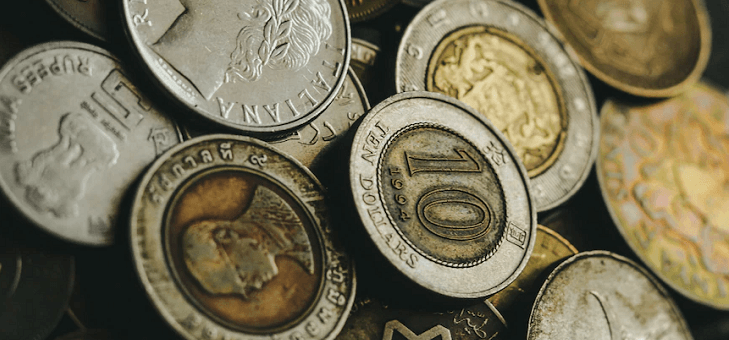Chances are you’ve spent a lot of time thinking about money.
But probably not in the same way Financial Times journalist Gavin Jackson has.
He’s asked all sorts of questions about money — both practical and philosophical — and has come up with some surprising conclusions too.
So here are five questions about money you probably haven’t thought to ask and their answers, as told to ABC RN’s The Money.
Why is money valuable?
Well, according to Jackson, it isn’t.
He says money is, in and of itself, inherently worthless.
“Money is just a token, really, it’s just a symbol,” he says.
But, he says, “it’s a symbol that has power over everything we do.”
Money has value because we, as human beings, give it value, he says.
Even gold is not inherently precious: “It’s just shiny and we have given that shininess some symbolic value.”
Instead money serves as a promise, Jackson says.
“The expectation is if you present that [money] to someone, they’ll give you something in exchange,” he says.
“It’s like a debt being redeemed by someone else, but it’s being redeemed in kind by the goods you can exchange for that money.”
What did we do before money?
Before money, Jackson says, most people lived in tribal “gift economies”.
“Instead of keeping a record of who owes what, through the device of money … we would sort of just give each other things,” he says.
That worked when everyone knew one another, he says, but as societies grew, the need arose for some way of keeping track of people’s debts to each other.
In his book Money In One Lesson, Jackson points to a 5000-year-old Mesopotamian tablet detailing beer rations owed to workers as one of the earliest known examples of the tracking of a debt.
Later, Babylonians tracked the value of different commodities using a single unit of measurement — a fixed weight of silver, called a shekel.
What would happen if we suddenly didn’t have money?
The most likely answer to this question is that we’d simply invent it.
There are several examples of people finding a new means of exchanging goods when state-sanctioned money is in short supply.
In his book, Jackson writes that cigarettes have been used as currency by prisoners of war, while tins of mackerel are used as currency in some US prisons.
Another example, says Jackson, was the Irish banker’s strike of 1970, when banks were officially closed for six months, effectively cutting off the population’s access to cash.
People had to come up with another means of payment, so they took to writing cheques to each other.
“Albert could write a cheque to Brenda and Brenda could write a cheque to someone else,” Jackson says.
Pubs acted as banks, he says, cashing the cheques of people they knew and trusted — with people’s history of paying their bar tab serving as a sort of credit rating.
What will money look like in the future?
You may think that the pandemic will have hastened the demise of physical cash, with many people moving to more sanitary, virtual payment methods.
But in the first year of the pandemic, the amount of physical cash in Australia increased, according to the Reserve Bank of Australia (RBA).
The same was true in the UK, says Jackson. He says the closure of bank branches may also have contributed to the increase in the amount of cash people were storing at home.
But, he says, the long-term trend is “people moving more and more towards digital currency”.
One problem with digital transactions, however, is privacy.
“Digital money can be tracked,” Jackson says.
“Everything you buy and sell is observed by the person who’s transferring it through the system.”
When money goes online, Jackson says, it becomes information.
“And that information is very valuable.”
Tech companies such as Facebook have shown interest in digital currencies, Jackson says, because they want to know our purchasing behaviour so they can better target us with advertising.
Meanwhile, he says, the Chinese government is doing a lot of work on its own digital currency.
“There’s some concerns that could become the building block for the system of surveillance — seeing whether people are buying books the Chinese government doesn’t like, transferring money to people the Chinese government doesn’t like — because it could observe all that through the digital economy.”
Jackson says privacy is part of the attraction of cryptocurrencies such as bitcoin.
“They offer an added layer of protection against anyone snooping on you online,” he says.
So should I change all my money into bitcoin?
Maybe not. The problem with bitcoin, Jackson says, is “it’s not yet very good as money”.
“It’s so volatile in price,” he says.
“You’ve probably seen or heard stories about bitcoin shooting up in value one day and collapsing a couple of months later and that’s not what you want money to do.
“You want it to be relatively stable in value day-to-day so you know what you’re getting charged and what you should charge people.”
 © 2020 Australian Broadcasting Corporation. All rights reserved.
© 2020 Australian Broadcasting Corporation. All rights reserved.
ABC Content Disclaimer

